a magical place, a locus point of energy, where one’s deepest wish comes true, bears fruit
Don't wanna be here? Send us removal request.
Text
This is called "knowing your audience."
Nicole Coenen [ Instagram | TikTok | YouTube ]
25K notes
·
View notes
Text
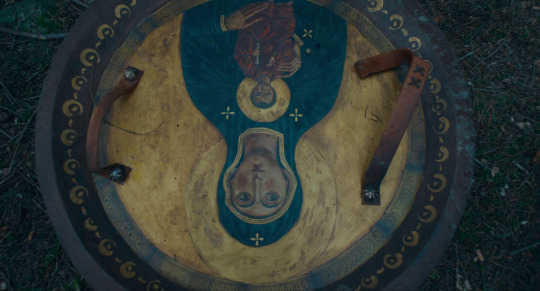

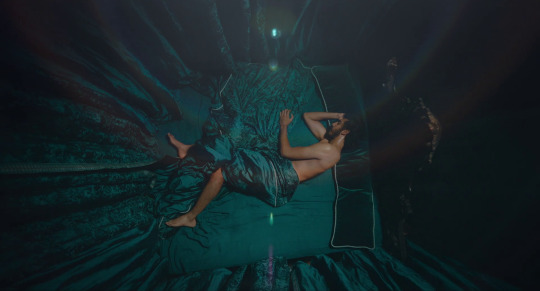

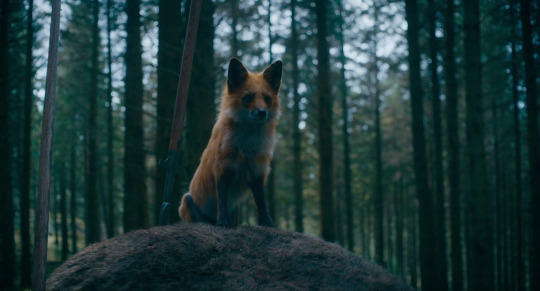
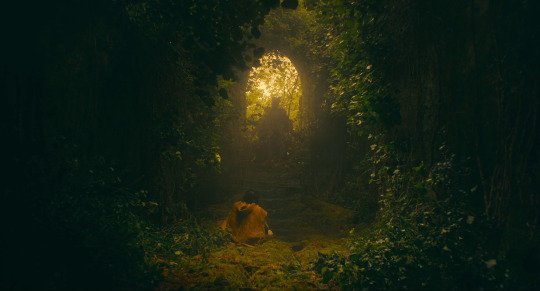
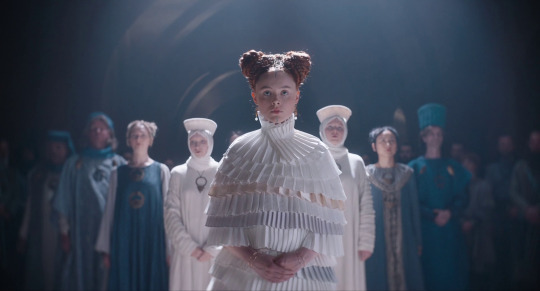
The Green Knight (2021) | dir. David Lowery
733 notes
·
View notes
Text
It’s like this…
You’re fourteen and you’re reading Larry Niven’s “The Protector” because it’s your father’s favorite book and you like your father and you think he has good taste and the creature on the cover of the book looks interesting and you want to know what it’s about. And in it the female character does something better than the male character - because she’s been doing it her whole life and he’s only just learned - and he gets mad that she’s better at it than him. And you don’t understand why he would be mad about that, because, logically, she’d be better at it than him. She’s done it more. And he’s got a picture of a woman painted on the inside of his spacesuit, like a pinup girl, and it bothers you.
But you’re fourteen and you don’t know how to put this into words.
And then you’re fifteen and you’re reading “Orphans of the Sky” because it’s by a famous sci-fi author and it’s about a lost generation ship and how cool is that?!? but the women on the ship aren’t given a name until they’re married and you spend more time wondering what people call those women up until their marriage than you do focusing on the rest of the story. Even though this tidbit of information has nothing to do with the plot line of the story and is only brought up once in passing.
But it’s a random thing to get worked up about in an otherwise all right book.
Then you’re sixteen and you read “Dune” because your brother gave it to you for Christmas and it’s one of those books you have to read to earn your geek card. You spend an entire afternoon arguing over who is the main character - Paul or Jessica. And the more you contend Jessica, the more he says Paul, and you can’t make him see how the real hero is her. And you love Chani cause she’s tough and good with a knife, but at the end of the day, her killing Paul’s challengers is just a way to degrade them because those weenies lost to a girl.
Then you’re seventeen and you don’t want to read “Stranger in a Strange Land” after the first seventy pages because something about it just leaves a bad taste in your mouth. All of this talk of water-brothers. You can’t even pin it down.
And then you’re eighteen and you’ve given up on classic sci-fi, but that doesn’t stop your brother or your father from trying to get you to read more.
Even when you bring them the books and bring them the passages and show them how the authors didn’t treat women like people.
Your brother says, “Well, that was because of the time it was written in.”
You get all worked up because these men couldn’t imagine a world in which women were equal, in which women were empowered and intelligent and literate and capable.
You tell him - this, this is science fiction. This is all about imagining the world that could be and they couldn’t stand back long enough and dare to imagine how, not only technology would grow in time, but society would grow.
But he blows you off because he can’t understand how it feels to be fourteen, fifteen, sixteen, seventeen and desperately wanting to like the books your father likes, because your father has good taste, and being unable to, because most of those books tell you that you’re not a full person in ways that are too subtle to put into words. It’s all cognitive dissonance: a little like a song played a bit out of tempo - enough that you recognize it’s off, but not enough to pin down what exactly is wrong.
And then one day you’re twenty-two and studying sociology and some kind teacher finally gives you the words to explain all those little feelings that built and penned around inside of you for years.
It’s like the world clicking into place.
And that’s something your brother never had to struggle with.
107K notes
·
View notes
Quote
He did not lose his temper. He had no temper left to lose. That was his tragedy, and his mark of dignity too.
Michel Faber, The Book of Strange New Things
2 notes
·
View notes
Quote
Some people go through heavy stuff. They fight in wars. They’re in jail. They start a business and it gets shut down by gangsters. They end up hustling their ass in a foreign country. It’s one long list of setbacks and humiliations. But it doesn’t touch them, not really. They’re having an adventure. It’s like: What’s next? And then there’s other people who are just trying to live quietly, they stay out of trouble, they’re maybe ten years old, or fourteen, and one Friday morning at 9.35 something happens to them, something private, something that breaks their heart. For ever.
Michel Faber, The Book of Strange New Things
16 notes
·
View notes
Quote
I’m only going to say this once. This experience is not educational. It is not instructive. It is not God moving in mysterious ways, it is not God figuring out exactly what sublime ultimate purpose can be served by me stepping on Joshua’s leg and everything after. The Saviour I believed in took an interest in what I did and how I behaved. The Saviour I believed in made things happen and stopped things happening. I was deluding myself. I am alone and frightened and married to a missionary who’s going to tell me that the fool has said in his heart there is no God, and if you don’t say it it will just be because you’re being diplomatic, because in your heart you’re convinced I made this happen through my faltering of faith, and that makes me feel even more alone. Because you’re not coming back to me, are you? You like it up there. Because you’re on Planet God. So even if you did come back to me, we still wouldn’t be together. Because in your heart you’d still be on Planet God, and I’d be a trillion miles away from you, alone with you by my side.
Michel Faber, The Book of Strange New Things
0 notes
Quote
The window he’d been using as a mirror became a window again, as lights flared up outside. Two glowing points, like the eyes of some monstrous organism approaching. He stepped closer to the glass and peered through, but the vehicle’s headlights disappeared just as he recognised them for what they were.
Michel Faber, The Book of Strange New Things
1 note
·
View note
Quote
But like I said, I don’t fantasize about the existence of nations.
Carmen Boullosa, Heavens On Earth (translated by Shelby Vincent)
3 notes
·
View notes
Quote
The people of L’Atlàntide believe that the gardens belong to them, but in reality the gardens are foreign to them; they belong to the other, to the unknown enigma. And we can never approach this unknown mystery without words.
Carmen Boullosa, Heavens On Earth (translated by Shelby Vincent)
0 notes
Quote
We survivors have cultivated some gardens with the seeds or the memory of the remains that we salvaged from the destruction, but I almost never visit them. This is something else that the other survivors don’t understand—they say it’s foolish and unnecessary to dirty my feet among the ruins since we’ve created an earthly paradise in an artificial enclosure that replicates the natural world and is “untouched by the hand of man.” It’s as if they believe that they’ve succeeded in replicating the garden where still-innocent Eves and Adams stroll because they haven’t recreated the serpent.
Carmen Boullosa, Heavens On Earth (translated by Shelby Vincent)
1 note
·
View note
Quote
So why books? I work with books because they survive across time. From the moment a book is written, it begins to interact with the past and the future. Books have always been the memory of other times—those that have been, those that will be, those that couldn’t be, or can’t be, or that should have been.
Carmen Boullosa, Heavens On Earth (translated by Shelby Vincent)
19 notes
·
View notes
Quote
Sometimes when I remember the atmosphere burning, I think I feel what they used to call “melancholy.” But I’ve had enough of the sad, cadaverous footprints of things—dirtying the bottoms of the seas and lakes, the water of the rivers, and the surface of the Earth—dancing a macabre dance in cyclones full of man-made things.
Carmen Boullosa, Heavens On Earth (translated by Shelby Vincent)
#Carmen Boullosa#Heavens On Earth#Shelby Vincent#sf in translation#prose#fiction#excerpt#Spanish#climate change
0 notes
Quote
I respect the past because I remember. But I don’t do so blindly; remembering the men from the time of History doesn’t mean singing their praises, lamenting their demise, or exalting ourselves. I remember them by writing for them, even though they don’t know it because they destroyed themselves. Remembering doesn’t make me a doe-eyed optimist or a slave to the past. I remember in order to stir my imagination and sharpen fantasy’s penetrating point.
Carmen Boullosa, Heavens On Earth (translated by Shelby Vincent)
0 notes
Quote
I won’t be able to maintain this blindness that can’t distinguish the wolf from the lamb.
Carmen Boullosa, Heavens On Earth (translated by Shelby Vincent)
0 notes
Quote
One day we’ll understand that to remember is to survive. Then language will regain its proper place and the memorious will be the soul of L’Atlàntide.
Carmen Boullosa, Heavens On Earth (translated by Shelby Vincent)
0 notes
Quote
Most people in L’Atlàntide think we should only be concerned with the present and the future. In fact, they think we have to forget the past completely because it was merely a lesson in errors—a lesson on how to destroy the Natural World. If it’s true, as they say, that we only need to focus on the present and the future—and if we erase the past completely like they want us to do—Time, or what we know as such, would dissolve. We would float in an amorphous mass where there isn’t a place for Time. The proposed reform—calling for total oblivion—means that we would lose conscious awareness, we would lose everything it means to be human. But what if we didn’t lose consciousness? What if consciousness left us instead and closed the doorway to the imagination? What kind of future would we have? Do we have another door to the future? To be able to imagine we have to remember, we have to listen to the voice of memory. That’s what I think anyway.
Carmen Boullosa, Heavens On Earth (translated by Shelby Vincent)
0 notes
Text
I’m reading a book on Fermi’s paradox and the author points out that even if we detected intelligent life on a planet somewhere, it wouldn’t solve the paradox—given the enormous scales of space and time involved, “Why are there just two planets harbouring intelligent life?” is as great a mystery as “Why is there just one?” Though, finding one other civilisation might solve the problem if they are more advanced than us (and able to communicate with us)—they might have a better idea of what the astrobiological landscape is like and just be able to explain to us why life isn’t more common or why we can’t detect it. The author quickly adds that this would feel like cheating. Being given the explanation rather than figuring it out ourselves. We don’t really want that, do we. I just love scientists. Imagine being a member of an older and more advanced alien civilisation thinking you’re doing these “human” creatures a great kindness by finally putting their minds at ease and explaining why they couldn’t find more signs of life out there—and having them react like “Oh!!…….. we wanted to find the answer ourselves :( ” I would be very charmed.
4K notes
·
View notes